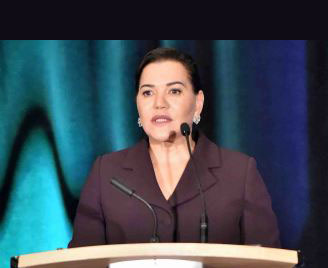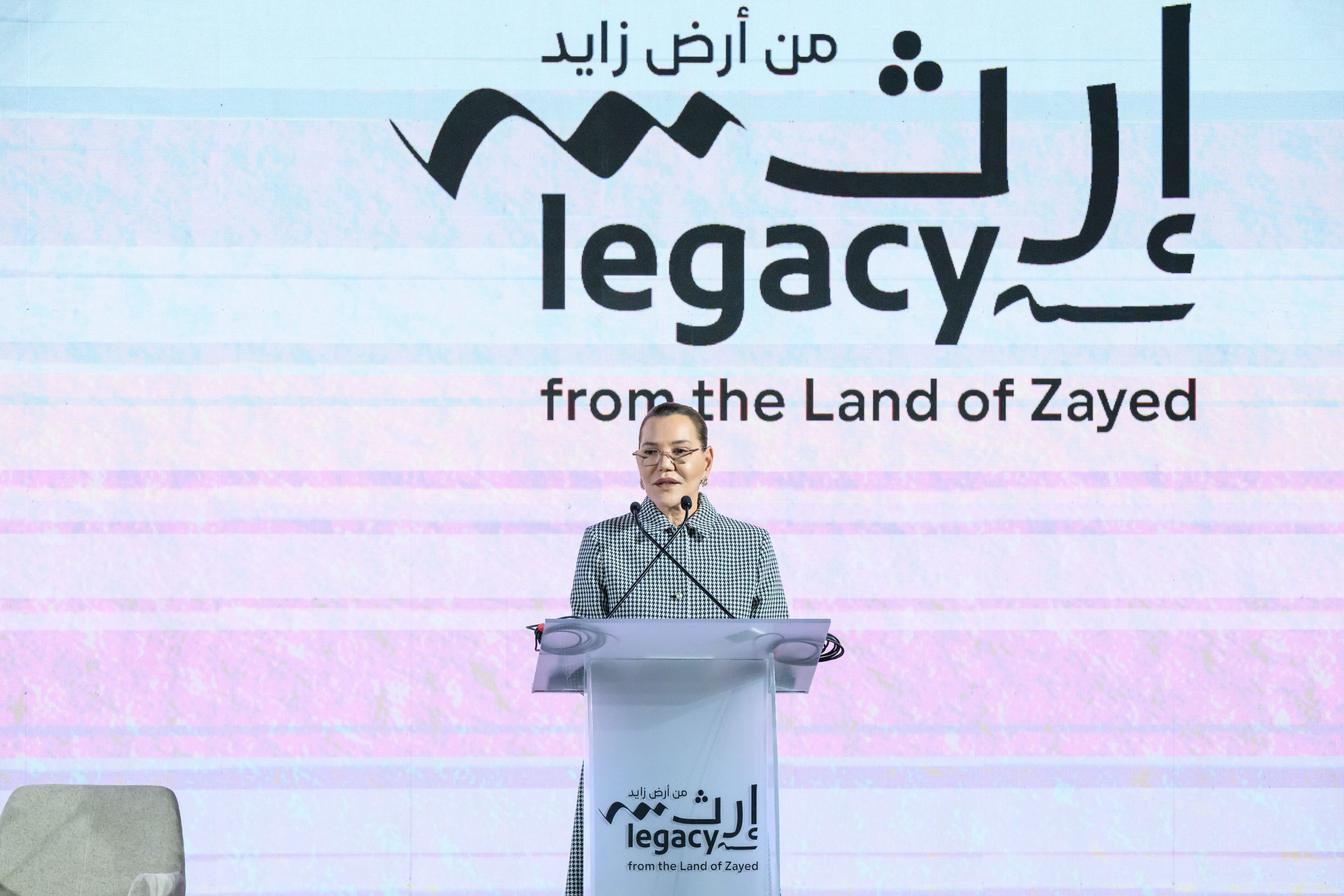
الحمد لله وحده، والصلاة والسلام على مولانا رسول الله وآله وصحبه
Madam Executive Secretary of the United Nations Framework Convention on Climate Change,
Your Excellencies,
Ladies and Gentlemen,
At the start of this High-Level Segment of the COP 23 Education Day, I would like, first, to pay tribute to the Fijian Presidency for the beautiful concept of Talanoa chosen to guide the proceedings of this conference.
Let us hope the spirit of Talanoa will forever characterize international negotiations on the climate and become the perfect model for our common good.
I particularly cherish COP Education Days. This year, I have the pleasure of meeting, once again, with Mrs. Patricia Espinosa, who has been making untiring to ensure that the commitment of States to combating climate change becomes a reality on the ground.
Education Days provide an excellent platform for exchanging experiences, educational approaches and outreach activities in the area of global warming.
To be sure, there is no need to dwell on the crucial role of education in promoting sustainable development in order to rise to the climate challenge. There is simply no disagreement on this. However, what is of the utmost importance is to regularly pool and compare our approaches in order to enrich them.
Your Excellencies,
Ladies and Gentlemen,
Since his accession to the throne, His Majesty King Mohammed VI has made environmental conservation front and center in the Kingdom’s development agenda.
The year 2011 saw a watershed moment in this regard: the right to a healthy environment and to sustainable development was enshrined in the Kingdom’s Constitution.
Subsequently, a framework law introducing the National Charter for the Environment and Sustainable Development set out Morocco’s chief objectives in this regard, including the mainstreaming of environmental culture and the protection of the environment in education and training curricula.
Environmental issues in general, and matters relating to the climate in particular, are among the Kingdom’s priorities and action at multilateral level.
Thus, while assuming the Presidency of COP22, Morocco actively sought to consolidate and build on the momentum generated by the adoption of the Paris Agreement.
As pointed out in the Marrakesh Action Proclamation, adopted at the end of the proceedings, the conference represented “an important inflection point of” towards the translation of commitments into action. Thus, States Parties reiterated their resolve to “inspire solidarity and opportunity for (…) future generations”.
The COP22 Education Day was a highlight in its own right. It epitomized the mobilization of young people and showed their sense of responsibility in the area of environmental conservation. Who could possibly forget the eleven recommendations made by young people from a broad range of backgrounds, advocating that we rein in our ecological footprint?
Your Excellencies,
Ladies and Gentlemen,
The core objective of the Mohammed VI Foundation for Environmental Protection, which was set up by His Majesty King Mohammed VI in June 2001, and which I am honored to chair, is to educate and sensitize citizens about the environment. Without this educational component, the Foundation’s mission would simply not be possible.
From day one, the younger generations have been the Foundation’s prime target. Working jointly with the Ministry of National Education, we introduced two environmental education programs in Morocco, namely Eco-Schools and Young Reporters for the Environment.
In 2017, the Eco-Schools program has been revamped through the introduction of a new theme specifically dedicated to climate change. Rather than receiving a diffuse type of education, schoolchildren are now gaining a deeper understanding of the impacts of global warming; they get involved and look for local solutions to cope with the phenomenon and seek to adapt to it. Gradually, their behavior is changing.
Significantly, in an inspirational turn of events, the Eco-Schools located near solar and wind power plants have developed projects centered on renewable energy. In Ouarzazate, students developed a solar-powered domestic cooker; and in Tangiers, an educational wind turbine is being installed.
As for the Young Reporters for the Environment program, each year it fosters our sense of wonderful admiration, given the quality, relevance and aesthetic appeal of the written or photographic reports made by students.
Thus, a team from a high school in Nador, in the north-eastern part of the Kingdom, conducted a thorough investigation of forest fires during drought. It underscored the effects of climate change and proposed to involve the local population in the prevention and protection of forest resources, through a participatory approach.
In the same vein, high school students from Smara, in southern Morocco, compared different local strategies in the area of combating desertification and carried out an evaluation of their city’s green belt project, which is in progress. Having perfectly understood and appraised the issues at stake, they developed a model nursery inside their school, choosing the best-suited endemic forest species.
Your Excellencies,
Ladies and Gentlemen,
Having worked for sixteen years on environmental awareness and education, the Mohammed VI Foundation for Environmental Protection has reached two main conclusions.
The first one is that, in all modesty, and with the support of important international bodies, such as UNESCO, UNEP, FAO and the UNFCCC Secretariat, the Foundation embarked on a pathfinding mission in a society in which the very notion of environmental protection had been largely unheard of. Today, however, environmental conservation is present in both word and deed, all the way through.
That is the first result – one of which the Foundation is indeed proud. And this is a matter of satisfaction for us.
The second conclusion, which we draw with a sober mind, is that he results obtained by the Foundation remain beneath the magnitude of the challenge faced. Whereas the sensitization momentum is well underway in Morocco, it does not yet concern all Moroccan citizens, regardless of age, place of residence or social status. It is with mixed feelings that we are drawing this second conclusion, which reminds us that in the area of environmental education, in Morocco as well as in other countries, there is certainly room for improvement.
I fully subscribe to one of the main conclusions of the 2016 Global Education Monitoring Report, entitled Education for People and Planet, presented at COP22 in Marrakech. The role of education has never been more crucial: it is through education that we build the skills, attitudes and behaviors that are essential for the achievement of sustainable development. Education is also the tool whereby each and every one of us can acquire a culture of environmental protection.
In that way, each person will be expected to assess his or her impact on the environment, in their daily lives as well as in the decisions they have to make. We would thus be in a position to help check the destructive spiral of global warming.
Your Excellencies,
Ladies and Gentlemen,
The Mohammed VI Foundation for Environmental Protection is particularly keen to speed up and broaden its action in the area of education for sustainable development, both in the Kingdom and at the level of the continent to which it belongs – Africa.
With that in mind, and on the occasion of COP23, the UNFCCC Secretariat and the Foundation will strengthen their cooperation towards the implementation of Article 6 of the Framework Convention relating to education, training, awareness-raising and public access to information.
Thank you for your kind attention. I wish every success to this COP23 Education Day.
و السلام عليكم ورحمة الله تعالى وبركاته.

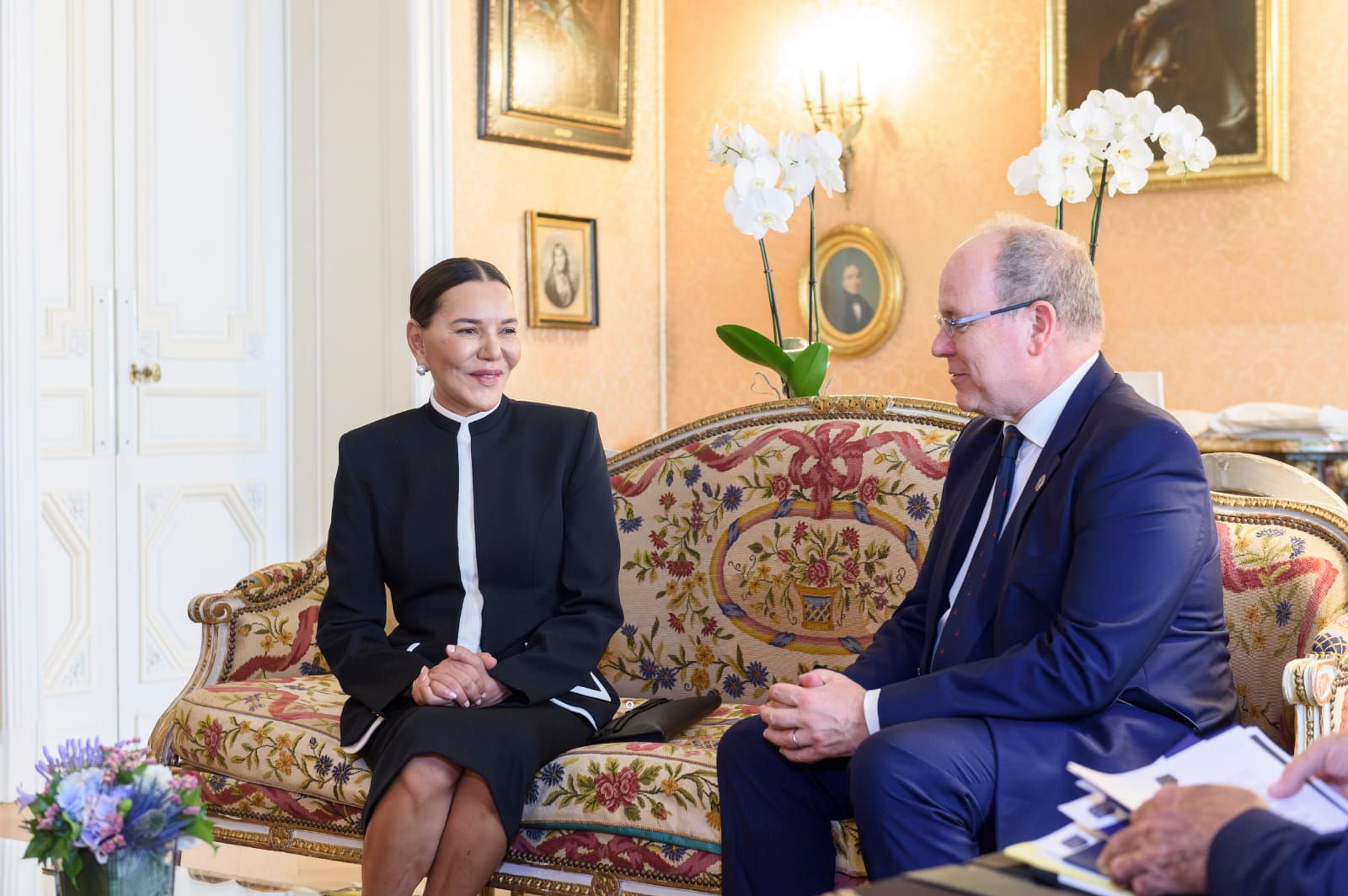
Monaco – June 14th, 2023
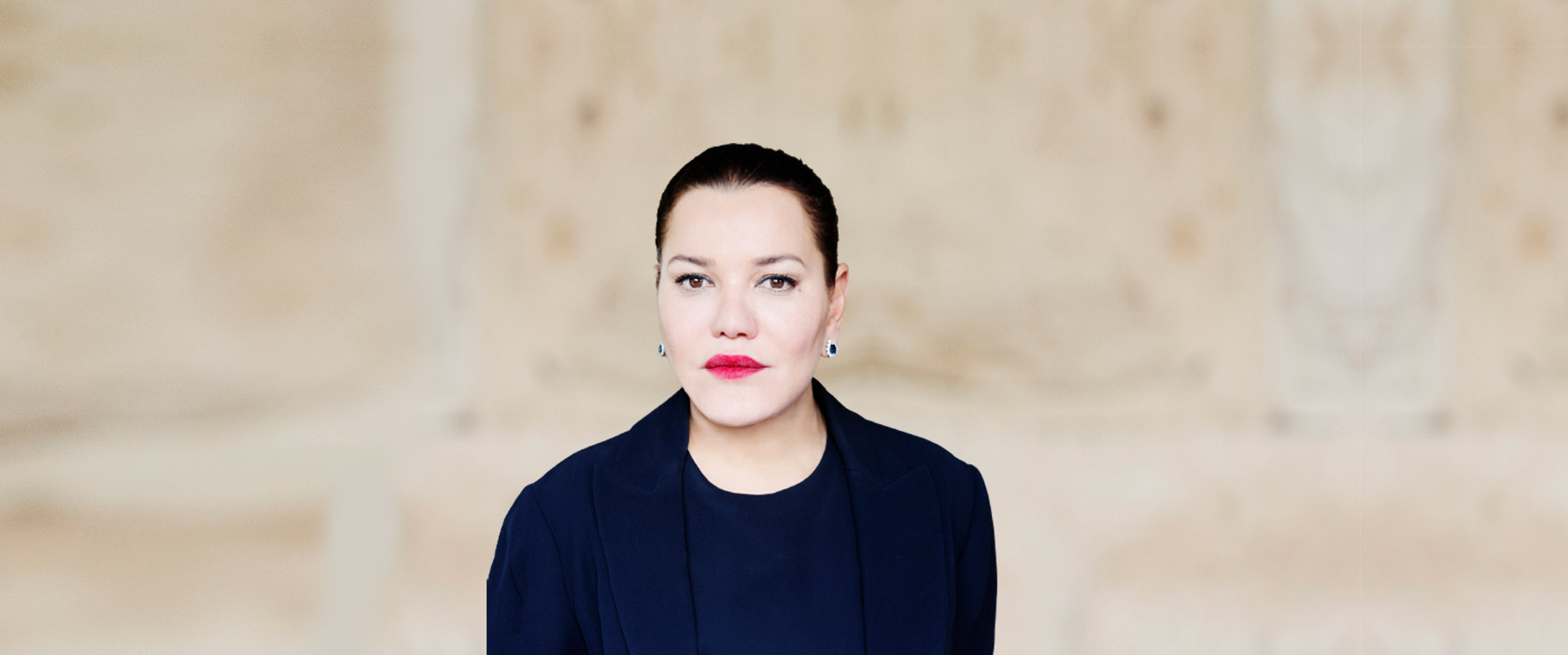
May 17, 2021
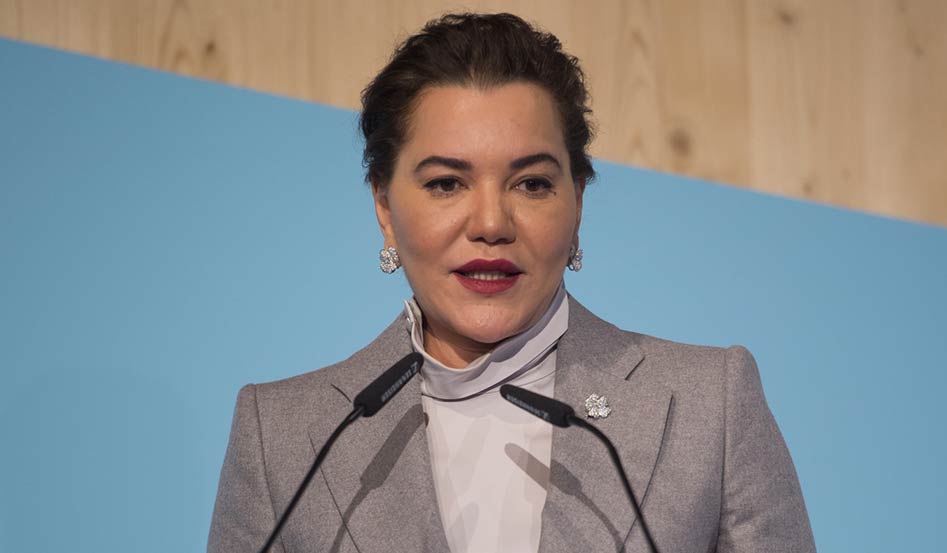
February 3, 2021
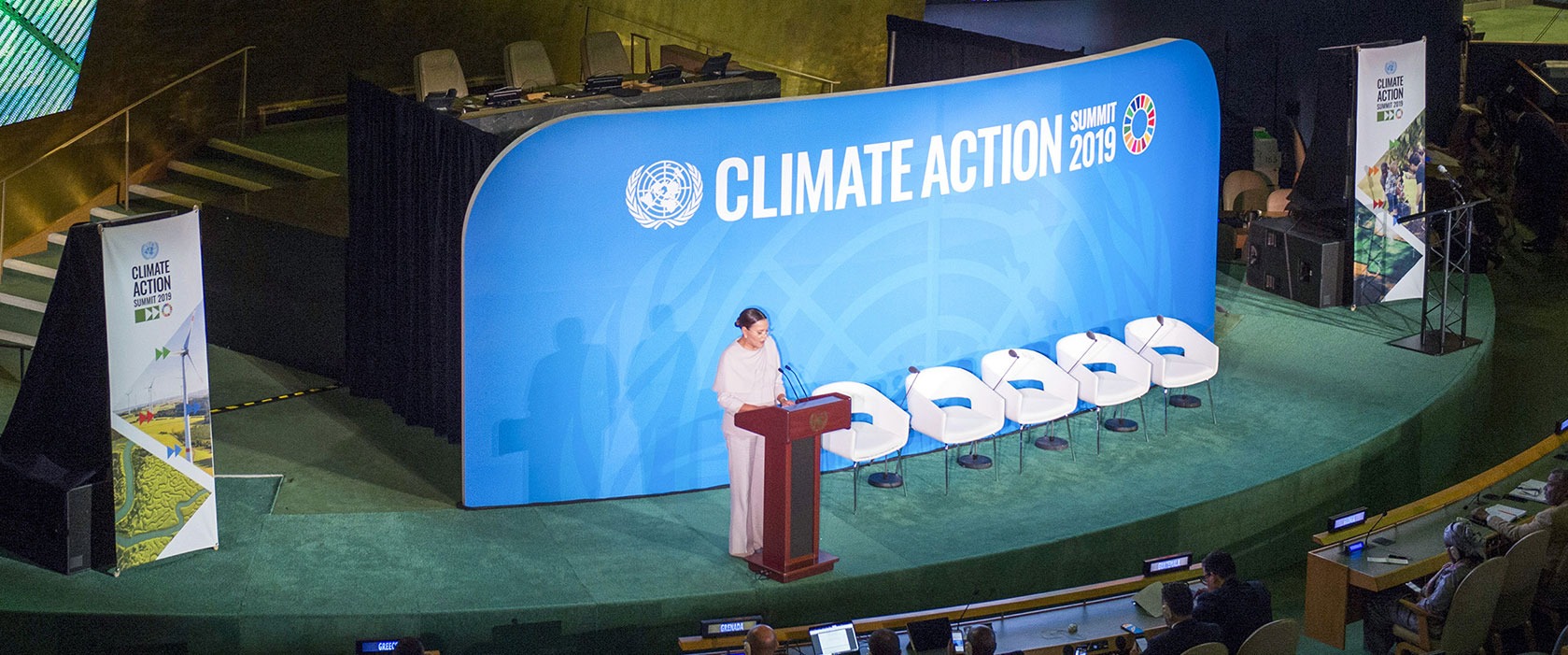
New York – September 23, 2019
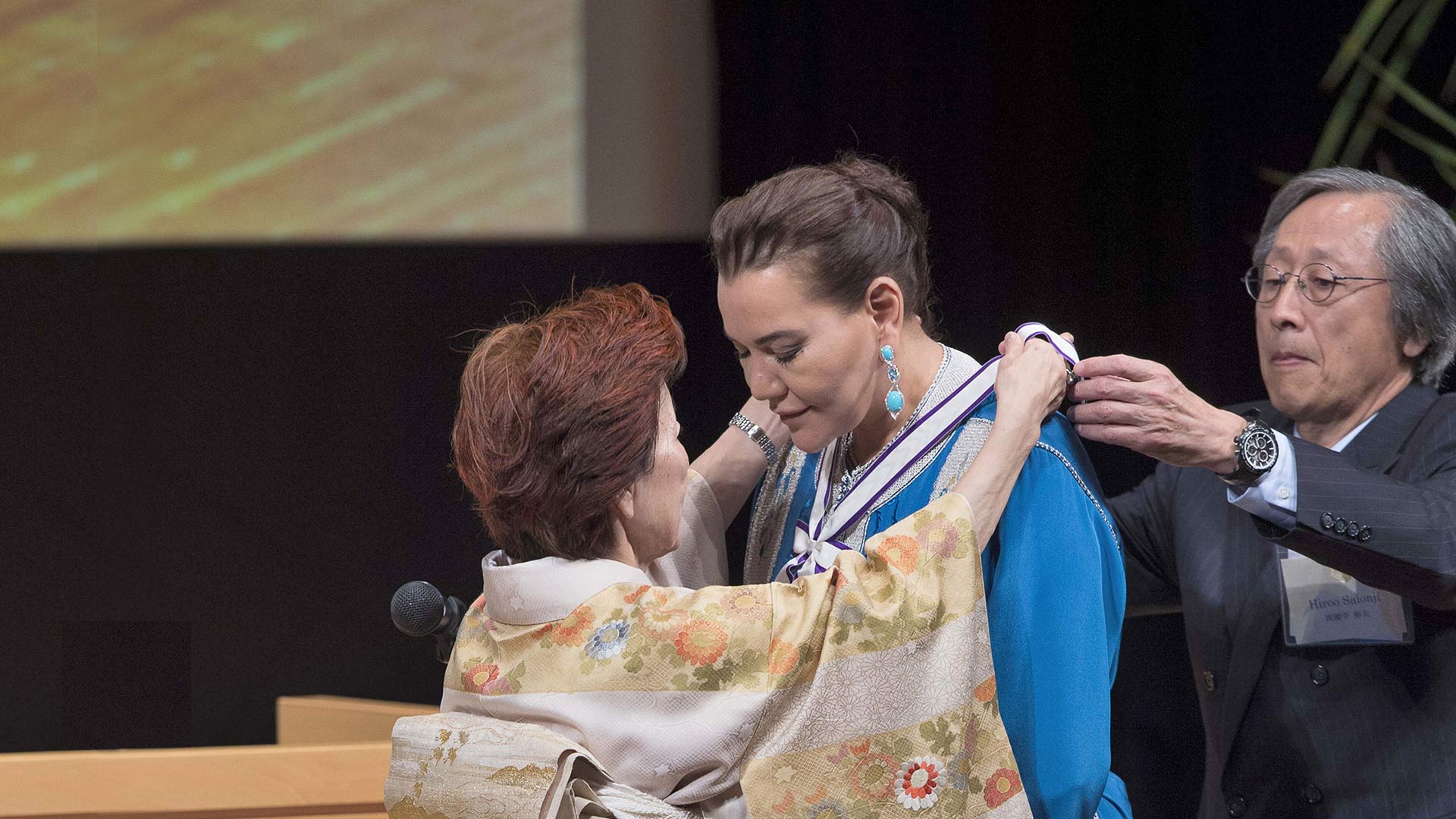
Tokyo – 23 novembre 2018
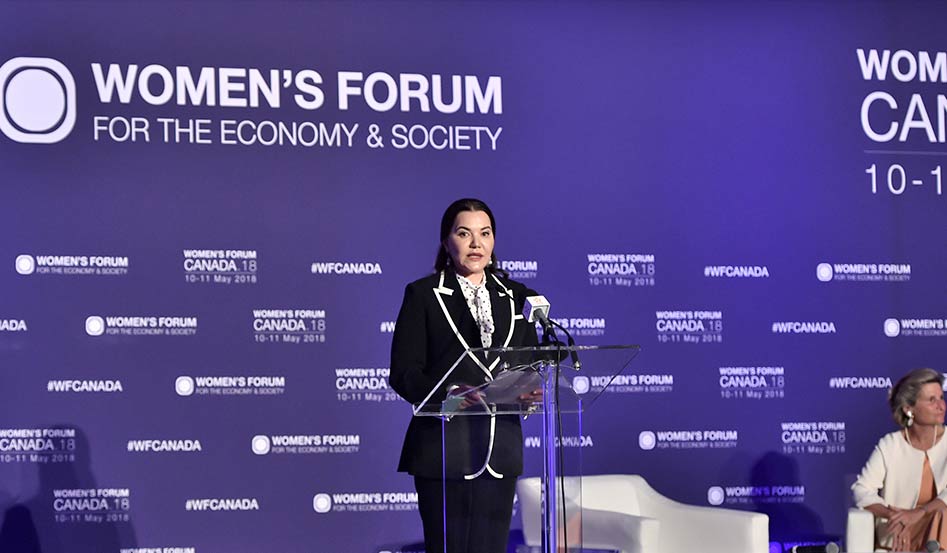
Toronto – May 10,2018
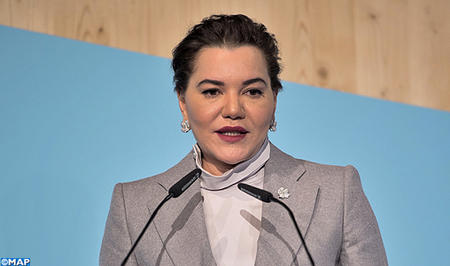
Bonn – 16 November 2017
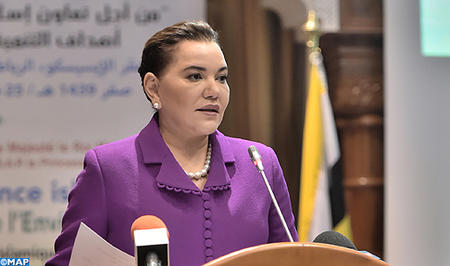
Rabat – October 25, 2017
